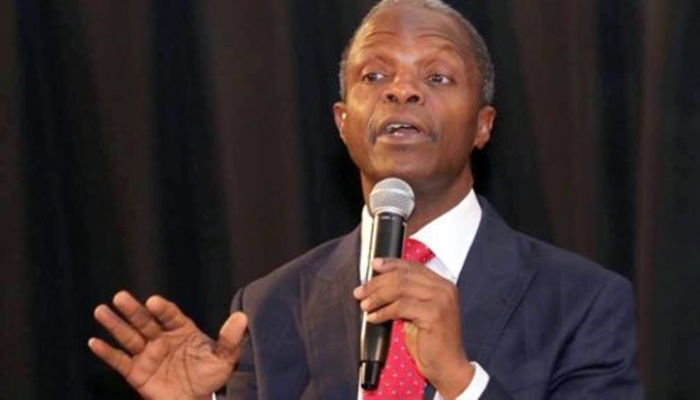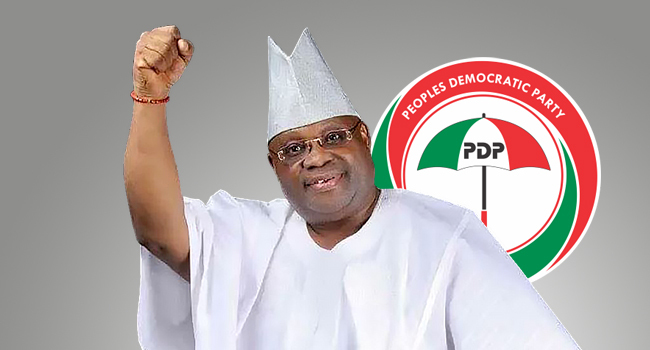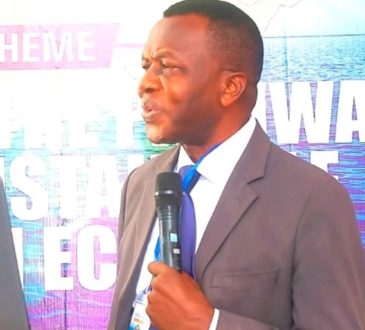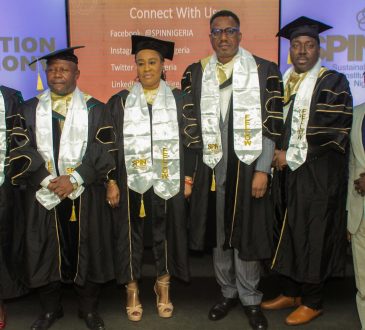
Nigeria’s on-going digital identification of all citizens and legal residents on a harmonized platform will be the largest database in Africa and only second in the world to the Aadhaar of India, Vice President Yemi Osinbajo has said. (Aadhaar is a 12-digit unique identification number issued by the Indian government to every individual resident of India).
Osinbajo stated this on Friday while delivering the keynote address at the “Technology As A Catalyst Conference,” TAAC, held in Lagos.
He said the project would open a lot of opportunities in different sectors in Nigeria.
“From the enhanced ability to provide accurate analytic data for FinTech services, to content delivery services to individuals directly on the assurance of credible credentials, but perhaps more importantly, planning on human development education healthcare, and jobs for a population that will be the third largest in the world by 2050.
“A key deliverable of the Digital Identity Project is to develop updated international standard cybersecurity, data privacy and confidentiality policies to prepare us for the expected challenges that will come as part of a digital economy.”
The Vice President said that the administration of President Muhammadu Buhari understands that importance of a data-driven economy and has directed huge investments and focus to digitizing government data.
According to Osinbajo, the Federal Executive Council has approved the “E-government Master Plan”, while the NITDA, in collaboration with Galaxy Backbone, has commenced the implementation of the interoperability framework that will provide a shared platform for the use of Ministries, Departments and Agencies.
“I have no doubt the many proponents of Artificial Intelligence (AI) will be excited about the immense data that will be available.”
The Vice President said the fundamental pillar of the Buhari administration’s economic plan is the lead role the private sector must play in business and commerce and the need to involve the sector in policy formulation.
“We realized that only real players in the technology space would be useful in policy formulation given the complexities of the sector, hence the establishment of the Technology and Creativity Advisory Group, which has the relevant regulatory agencies and industry players.
“While the public sector has been able to score points over the last two years through the implementation of technology-driven solutions, the award for the “Most Valuable Player” must go to our private industry leaders.”
He said the technology industry has been Nigeria’s highest increasing employer and the most improved economy contributor.
“Nigerian corporations have been willing to dream big, to lead Nigeria’s technological revolution.
“The fact is that platforms needed to power the initiatives of the public sector have originated from our private sector partners. Thanks to Nigeria’s private sector innovators, living in Nigeria is increasingly becoming tech-based.
“On our smartphones, we can search for apartments, perform bank transactions, book a taxi, order food, buy clothes, invest in a joint farming venture, monitor traffic, book a flight, while learning an indigenous language.”
Vice President Osinbajo noted that the focus of this year’s TAAC Conference on the “Ease of Doing Business in Nigeria” could not be more appropriate because both the public and private sectors have a role to play in driving economic development.
He said government realized that collaboration of the public and private sectors was key and established the Presidential Enabling Business Environment Council (PEBEC) as a forum where the public and private sector could work together in the objective of removing delays and restrictions that come with doing business in Nigeria and making the country a place where you can start, sustain, and grow a business.
The Vice President said PEBEC has formulated and implemented initiatives essentially leveraging on technology to reduce the time taken to obtain pre-investment approvals, property registration, and effecting internal and external trade processes.
According to Osinbajo, adaptation to technology has made it possible for Ministries, Departments, and Agencies of the Federal Government and some State governments to be able to reduce operational cost, reduce corruption, and revitalize participation and investment in numerous sectors of the economy.
“The Federal Inland Revenue Service (FIRS) has for instance, successfully and seamlessly automated majority of its services and processes; resulting in a reduction in time for filing Corporate Income Taxes from 14 days to 72hrs.
“The National Agency for Food and Drug Administration and Control (NAFDAC) has been able to clear a backlog of over 5,000 outstanding NAFDAC applications using technology solutions. In the energy sector, the introduction of electronic application and approval for new connections to the power grid has produced a reduction in the timeline for new connections by 147%.
“The National Collateral Registry (NCR) is another example. Through the implementation of a modern, web-enabled National Collateral Registry, the Central Bank of Nigeria has been able to aggregate over 530 financial institutions with over 30,000 financing statements valued at over N620 billion.”
In his remarks, Minister of Industry, Trade and Investment, Okechukwu Enelamah, said the private sector in Nigeria was willing to work with government, adding that the conference would be an avenue to cement the relationship between government and businesses.
Also speaking, the Senior Special Assistant to the President on Industry, Trade and Investment/ Secretary to PEBEC, Dr. Jumoke Oduwole, said government at all levels would collaborate more with the private sector to work harder and faster to increase productivity.
She said leveraging on the power of innovation and creativity would get Nigeria to that desired place.
Earlier, Mr. Osaro Eghobamien, who spoke on behalf of the organizers, said they would take the deliberations at the conference, monitor them and hold government accountable for what it says.






